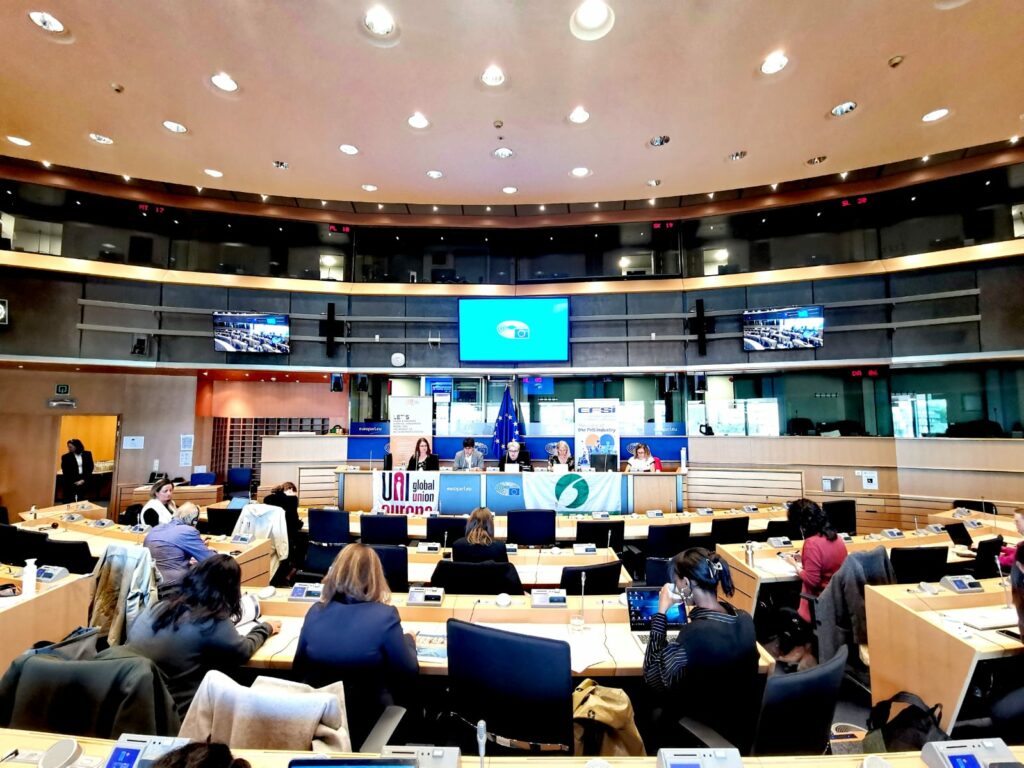On 29 September 2022, together with EFFAT, EFSI and UNI Europa we co-organised an event dealing with the opportunities offered by the European Care Strategy for the PHS sector. Hosted at the European Parliament by MEP Sirpa Pietikäinen, this major event gathered representatives from the European Commission and Parliament, civil society organisations and the Member States.

Policy makers encouraged the Commission and the Council to strengthen their collaboration with PHS social partners to move in the right direction. Marion Finke, member of Vice-President Dubravka Šuica’s cabinet, underlined that the PHS sector has enormous potential to meet the growing demand for care workers at European level.
Then, MEP Evelyne Regner (S&D Group), who is Vice-President of the European Parliament, welcomed the measures of the European Care Strategy, however she stressed the importance of deepening and changing the culture around care and caregivers.
MEP Véronique Trillet-Lenoir (Renew group) added to this the importance to fight against undeclared work. MEP Eugenia Rodríguez Palop (GUE/NGL group) stressed the need for Member States to ratify ILO Convention 189, like Spain, to improve working conditions for workers.
Following the interventions of MEPs, PHS social partners presented their joint statement on the Care strategy. They call on the European Commission to recognize the PHS sectors as such and consider PHS workers with the attention they deserve. They call for a revision of the definitions to include PHS more clearly in the recommendation proposals. In order to further guarantee the rights and working conditions of PHS workers, the social partners encourage Member States to promote the strengthening of the capacities of the social partners and of sectoral collective bargaining. They also call for the creation of a political framework to strengthen the fight against undeclared work, which is very significant in the PHS sector and not highlighted enough in the Commission’s European Strategy. This point has made it possible to highlight the importance of paying particular attention to the direct employment model, which is primarily concerned with undeclared work. Furthermore, Lilana Keith, representative of PICUM, underlined that migrant workers should be taken into account in sectoral social dialogues to ensure their direct representation. Indeed, in addition to the already precarious working conditions in the sector, migrant workers face additional challenges due to legislative and national particularities (i.e. permits, admission conditions, etc.). The social partners were then questioned about good practices in the PHS sector such as service vouchers in Belgium or the creation of collective agreements dedicated to the direct employment model in France.
To conclude, Lieve Verboven, Director of the ILO Office for the European Union and the Benelux countries, expressed the “5 Rs” necessary for the PHS sector, including the recognition, reduction and redistribution of unpaid care, labor reward and representation. She also underlined that the sector could count on the ILO for its support towards more formalization and better working conditions.
To learn more about PHS social partners’ joint statement click here.